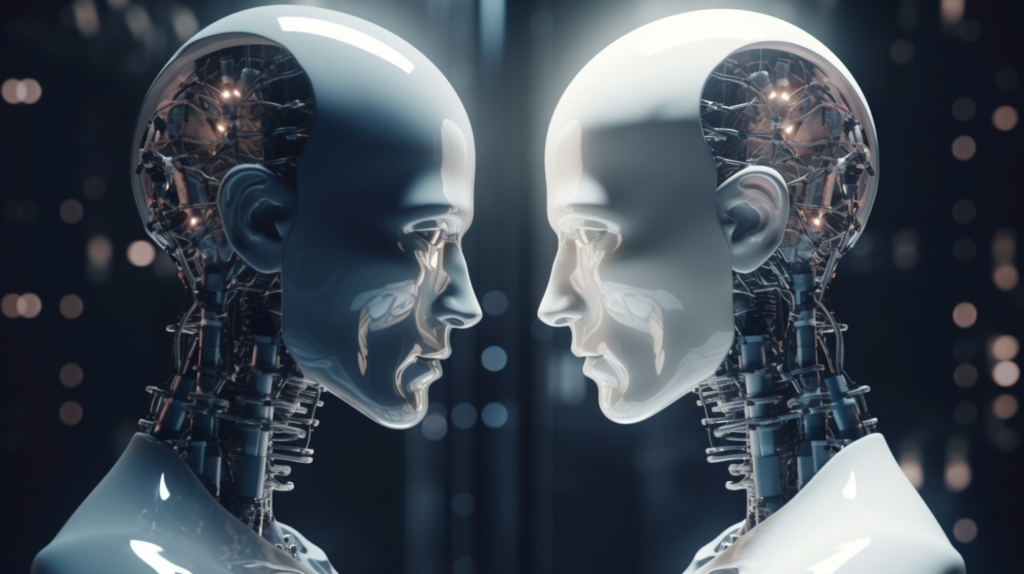Digital storytelling has evolved significantly with advancements in artificial intelligence (AI). One of the most exciting developments in this field is Character AI, which has the potential to revolutionize the way stories are created, told, and experienced. By combining AI algorithms, natural language processing, and deep learning techniques, Character AI enables the creation of lifelike and interactive virtual characters. These virtual characters can engage with audiences, adapt to their responses, and provide personalized storytelling experiences. In this article, we will explore the potential of Character AI and its impact on the future of digital storytelling.
Table of Contents
Enhancing User Engagement with Immersive Characters

Character AI introduces a new level of immersion and engagement in digital storytelling. Through sophisticated algorithms, virtual characters can be designed to have realistic personalities, emotions, and behaviors. These characters can interact with users in real-time, responding to their actions, choices, and emotions. By incorporating natural language processing, Character AI allows users to have meaningful conversations with virtual characters, blurring the line between fiction and reality. This personalized interaction deepens the emotional connection users feel with the story, making the overall experience more compelling and memorable.
Dynamic and Evolving Storylines

With Character AI, stories become dynamic and adaptive. Virtual characters can analyze user behavior, preferences, and responses to tailor the storyline in real-time. By using machine learning algorithms, Character AI can generate alternative story paths based on user choices, ensuring that each individual’s experience is unique. These dynamically evolving storylines keep users engaged and excited, as they feel actively involved in shaping the narrative. Moreover, virtual characters can also evolve over time, learning from user interactions and adapting their behaviors accordingly. This evolution adds a layer of realism and depth to the characters, fostering a stronger emotional connection with the audience.
Overcoming the Limitations of Traditional Storytelling
Traditional storytelling methods have limitations in terms of interactivity and personalization. Character AI addresses these limitations by offering a more interactive and customizable narrative experience. Users no longer have to passively consume a predetermined storyline; instead, they can actively participate in the story’s development and influence its outcomes. This interactivity enhances user engagement, as they become co-creators of the narrative. Additionally, Character AI enables the creation of stories that cater to individual preferences, allowing users to explore different genres, settings, and character dynamics. This personalized approach ensures that each user receives a tailored storytelling experience, increasing their satisfaction and enjoyment.
Empowering Content Creators

Character AI empowers content creators by providing them with powerful tools to craft compelling narratives. With AI-generated virtual characters, creators can focus on developing intricate storylines, knowing that the characters themselves will adapt and respond to user interactions. This automation of character behavior saves time and resources, enabling creators to experiment with diverse storytelling approaches. Moreover, Character AI can assist in generating dialogue, character backgrounds, and even plot twists, making the creative process more efficient. By leveraging AI, content creators can explore new possibilities and push the boundaries of storytelling, ultimately enhancing the overall quality of digital narratives.
Ethical Considerations and Challenges
As Character AI advances, it raises ethical considerations and challenges that need to be addressed. One of the key concerns is the potential for manipulation and misinformation. If virtual characters become highly persuasive or capable of spreading falsehoods, it could have significant societal implications. Additionally, there is the risk of over-reliance on AI, potentially leading to a loss of human creativity and originality in storytelling. Striking the right balance between AI automation and human creativity is crucial. Moreover, data privacy and security issues must be carefully addressed to protect users’ personal information and ensure their trust in AI-powered storytelling platforms.
Conclusion
Character AI holds immense potential for transforming digital storytelling. By creating interactive and immersive experiences, Character AI enhances user engagement and personalization. It allows for dynamic and evolving storylines, empowering users to shape the narrative. Content creators benefit from AI-generated characters, enabling them to focus on storytelling intricacies. However, ethical considerations and challenges must be carefully navigated to ensure responsible and beneficial implementation of Character AI. As the technology continues to advance, Character AI is poised to reshape the future of digital storytelling, unlocking new realms of creativity and user experiences.
Learn about: Unlock the Pages of Imagination: Witness the Phenomenon of AI Novels Redefining Literary Artistry